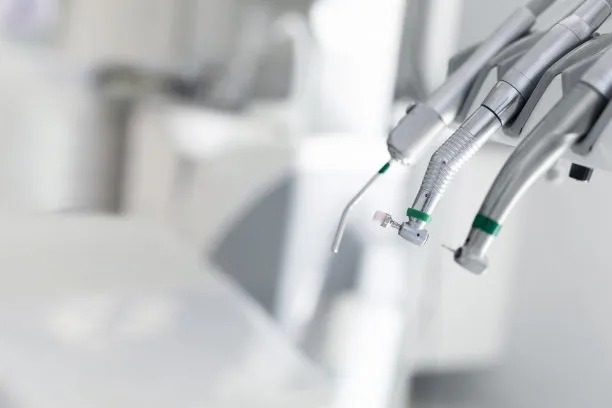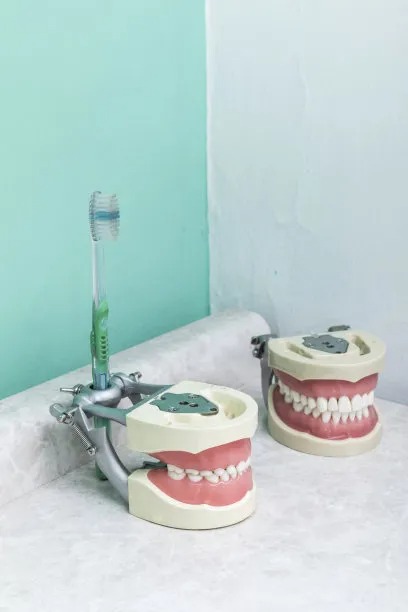Summary: Dental fillings are essential for treating cavities and maintaining oral health. However, proper precautions must be taken before and after the procedure to ensure optimal results and recovery. In this article, we will delve into four critical aspects: the importance of consultation and diagnosis, preparation for the procedure, post-procedure care, and how to maintain oral hygiene effectively. By following these essential precautions, patients can enhance their overall dental experience and improve the longevity of their fillings.
1. Importance of Consultation and Diagnosis

The first step before getting dental fillings is to consult with a qualified dentist. This consultation is vital as it allows the dentist to evaluate the extent of decay and the specific treatment required. A thorough examination, including X-rays, helps in determining the best filling material suited for your dental needs.
Moreover, discussing your medical history during this consultation is crucial. Certain health conditions or medications may influence the choice of filling materials or the procedure itself. Ensuring the dentist is informed about allergies, sensitivities, or previous dental work can lead to better outcomes.
Lastly, understanding the procedure and its implications is essential. Ask questions about what to expect, including any potential discomfort or recovery time. This knowledge can alleviate anxiety and prepare you mentally for the procedure, making the entire experience less daunting.
2. Preparation for the Procedure
After the consultation, proper preparation for the dental filling procedure is necessary. Firstly, ensure you follow any pre-operative instructions provided by your dentist. This may include eating or drinking restrictions, especially if sedation is required.
It is also advisable to arrange for transportation to and from the appointment, particularly if you choose to receive sedation. Having a reliable companion can ease stress and allow you to focus on the procedure itself.
Additionally, consider practicing relaxation techniques before your appointment. Techniques such as deep breathing, mindfulness, or visualization can help calm your nerves and make the experience more manageable. Arriving at the dental office feeling relaxed can contribute positively to the overall procedure.
3. Post-Procedure Care
After receiving dental fillings, specific care routines are essential for optimal recovery. Initially, it’s crucial to follow your dentists post-operative instructions, which may include avoiding certain foods for a set period. This precaution helps protect the filling during its critical initial phase when it may be more susceptible to damage.
Moreover, managing any discomfort is key. Over-the-counter pain relief medications may be recommended to help alleviate any pain or sensitivity in the days following the procedure. However, always consult your dentist before taking any new medication, especially if you are already on a specific drug regimen.
Furthermore, maintaining dental visits for follow-ups is vital. Regular check-ups allow your dentist to monitor your filling and ensure that oral health is being maintained. If any issues arise, such as heightened sensitivity or discomfort, addressing them early can prevent further complications.
4. Maintaining Oral Hygiene Effectively
To ensure the longevity of dental fillings, maintaining good oral hygiene practices is essential. Brushing your teeth twice a day with fluoride toothpaste and using an antibacterial mouthwash can help reduce plaque buildup, which is crucial for preserving fillings.
Regular flossing is equally important as it removes food particles and plaque from hard-to-reach areas around fillings. Consider using waxed dental floss as it may glide more smoothly between the teeth, minimizing the risk of damaging the filling.
Additionally, consider dietary choices post-treatment. Limiting sugary snacks and drinks can protect the integrity of both your natural teeth and fillings. Incorporating foods high in calcium and phosphorus, like dairy products and leafy greens, can also enhance overall dental health.
Summary:
Taking essential precautions before and after dental fillings can significantly influence the success of the procedure and the longevity of the fillings. A thorough consultation, proper preparation, attentive post-procedure care, and effective oral hygiene practices are all pivotal steps to ensure optimal oral care.
This article is compiled by Vickong Dental and the content is for reference only.
Vickong Dental
Vickong Dental is a large medical group established in Hong Kong in 2008 by professors from well-known medical universities in Guangdong and Hong Kong, as well as medical doctors from key national '985' universities (including Master's supervisors and senior professors). The chain of branches brings together expert dentists with PhDs and Master's degrees from Hong Kong and Mainland China, committed to providing high-quality dental treatment.
"Vickong Dental Practices the University Motto of 'Healing and Serving Society,' with a Stable Operation for Sixteen Years. It Has Been honored with Hong Kong Enterprise Leaders's Choice,' and is a Global Trusted Implant Center for the Nobel Implant System. Recommended by Hong Kong Metro Broadcast and Guangdong Television, it Serves Customers from Over Thirty Countries and Regions, Gaining the Trust and Favor of Citizens from the Guangdong-Hong Kong-Macau Greater Bay Area and Surrounding Cities.

Thousands of customers' unanimous praise
The most recognized and highly recommended dental service by customers in the Guangdong-Hong Kong-Macau Greater Bay Area
We Ensure You Receive Detailed Care and Attention Here
Hong Kong standards, Shenzhen prices, Your Trusted English-speaking dentists

Vickong Dental Medical-Grade Instrument Disinfection Process
Vickong Dental Medical-Grade Instrument Disinfection Process

Vickong Dental Chain: A Warm and Comfortable Environment for Treatment






Appointment Hours

Q&A
Why choose Vickong Dental?
Vickong Dental practices the university motto 「Medicine to Benefit Society」, with each branch bringing together highly qualified dentists with doctoral and master’s degrees from Hong Kong and the Mainland, and has maintained seventeen years of steady operation。Recipient of 「2024 Hong Kong Enterprise Leaders Brand」, 「2025 Hong Kong Enterprise Leaders Brand」, a Nobel Biocare Global Trusted Implant Center, and a brand recommended by Metro Radio Hong Kong and Guangdong TV。
To date, we have served customers from more than thirty countries and regions,earning exceptionally high word-of-mouth recognition and trusted recommendations from residents across the Guangdong-Hong Kong-Macao Greater Bay Area and surrounding cities
We have eight major branches in Zhuhai、Shenzhen,and a consultation and service assurance center in Hong Kong,so you can book a free consultation at any time for any questions,which is very reassuring.
If I do not accept the quotation after the CT scan, will I be charged??
No! As long as the actual treatment has not started, you will not be charged any fees.
Will there be any additional charges during the treatment process?
No, there won’t be any additional charges. Before treatment begins, we will clearly explain the treatment plan and its corresponding fees. Only after the patient agrees and signs the consent form will we proceed with the dental service.
Can I pay in Hong Kong dollars?
Yes. Vickong Dental accepts payment in Hong Kong dollars. The amount will be converted based on the exchange rate of the day, and the applicable rate will be clearly communicated to you in advance.
Can I reschedule my appointment at any time?
Yes. Please contact us via **WeChat** or **WhatsApp** as early as possible, providing your original appointment time and details, along with your preferred new date and time slot for rescheduling.













